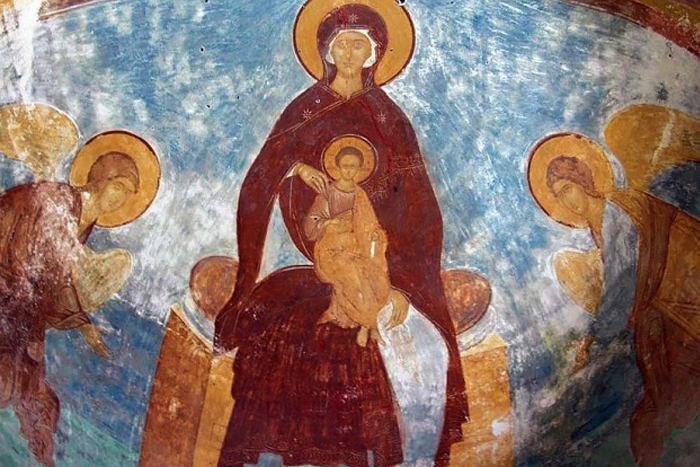
A story of a monk who prayed about knowing God’s inconceivable ways
Instead of humbly bowing before God, inscrutable in His ways and actions, we, on the contrary, often boldly judge the Divine Will grumbling at God’s provisions. This is not the way it should be. Although the ways of God’s providence are inscrutable, they are always beneficial for us and always lead to good consequences.
One hermit asked God to make him understand the ways of His Providence, and imposed a strict fast on himself. Despite that, God did not reveal to him what he wanted to know. The monk, however, did not abandon his petitions, until finally the Lord admonished him. As he was heading out to see an elder who lived far away from him, an Angel appeared to him in a monk’s guise and offered to be his companion. The hermit was very happy with the offer, and they went together. When the dusk fell, they stopped for the night with a pious man, who received them with such honor that he even offered them food on a silver platter. But what a surprise! Immediately after the meal, the Angel took the platter and threw it into the sea. The hermit was perplexed, but said nothing. They went further and the next day they stayed with another man, who was also pious and also received them gladly, washed their feet, and showed every attention. The trouble began when the hermit and his companion started to get ready for their journey. Their host brought his young son to them for a blessing. But instead of a blessing, the Angel, touching the boy, took his soul. Neither the horrified hermit, nor the despairing parent could utter a word, and finally the hermit ran out, followed hard on heels by his companion. On the third day of their journey, they had no other shelter than some ruined and abandoned house, in which they took refuge. The elder sat down to eat some food, while his companion, to his amazement, engaged in yet another strange endeavour. He began to destroy the house and, having demolished it, began to build it again. After seeing that, the elder could not restrain his temper any longer. “What are you, a demon or an angel? What are you doing?” he said to his companion with anger. “What was it that seemed so strange to you?” the Angel asked. “Are you joking?” the hermit continued, “On the first day you took a platter from a kind man and threw it into the sea; yesterday you took the boy’s life, and today, for whatever reason, you have destroyed this house and now you are building it again.” Then the Angel said to him, “Do not be surprised with this, elder, and do not be tempted about me, but listen to what I tell you. The first man, who bestowed us, is truly pious; but he has acquired that platter in unrighteousness; wherefore I threw it away, so that he would not be deprived of his reward because of it. Our second host is also a just man, but his young son was going to become a terrible villain; that’s why I took his soul, for the good of his father, so that both of them might be saved.” “What about here? What did you just do?” asked the hermit. The angel continued, “The owner of this house was a dissolute man, and for that he was reduced to poverty and forced to flee. His grandfather, when building this house, hid some gold in its wall, and some people know about it. That is why I ruined it, so that from now on no one would seek gold here and find death through it.” The angel concluded his speech saying, “Return to your cell, elder, and do not suffer; for the Holy Spirit tells us, “The judgements of the Lord are of inimitable depth, incomprehensible to man”; therefore, do not question them. It will not do you any good.” The angel then became invisible, and the stricken hermit repented of his delusion and later told everyone of what had happened to him.
Let us humble our minds, brethren, and refrain from penetrating into the inscrutable affairs of Divine Providence. It could hardly be of use to us, since our reason is limited and, on top of that, darkened by sin, while God with His boundless knowledge and wisdom is unlimited in all His perfections. Our business is to follow the will of God and to kiss the hand of God, whether pardoning or chastising, so that, striving in virtue, we remain loyal to the Divine Providence. Amen.
Translated by The Catalogue of Good Deeds
Source: https://azbyka.ru/otechnik/Viktor_Gurev/prolog-v-pouchenijah-na-kazhdyj-den-goda/90




